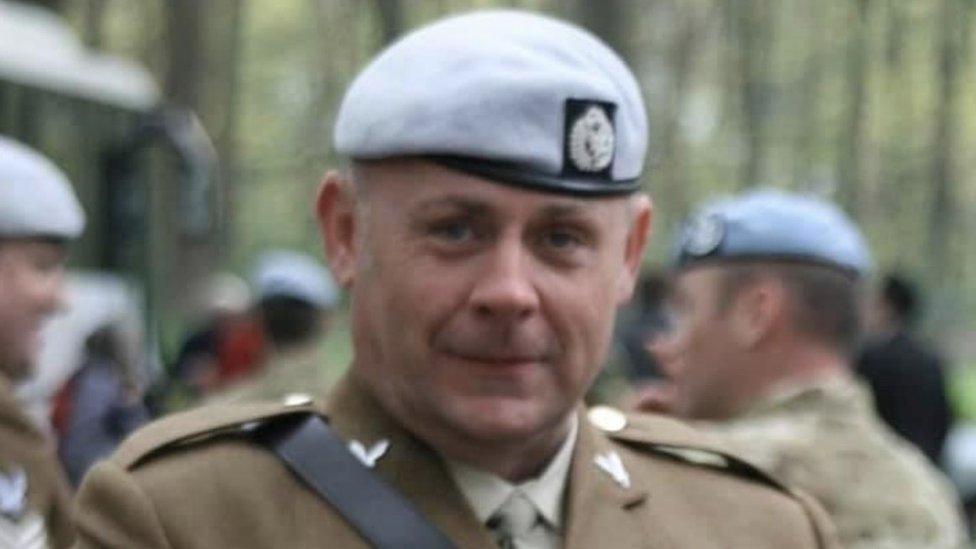Armed forces veterans to get more mental health support
- Published
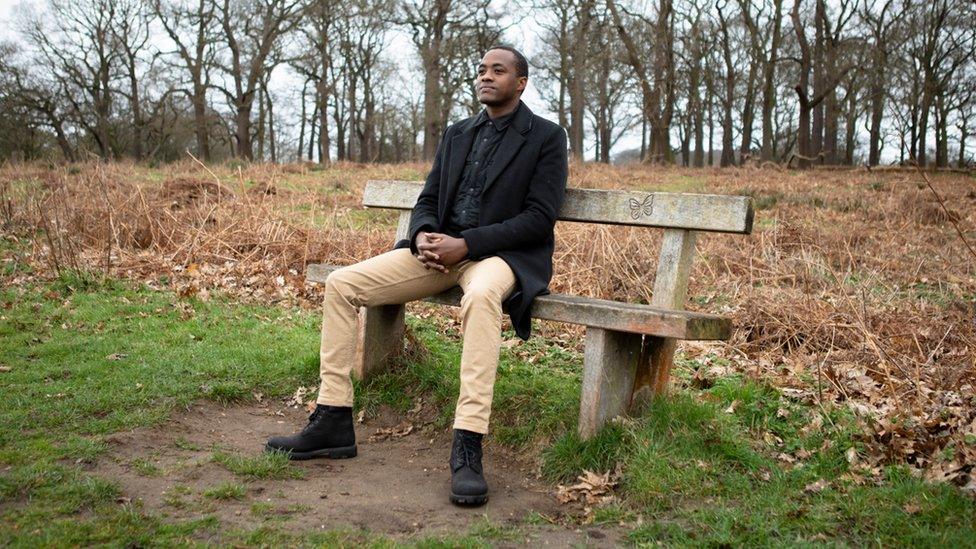
Denis Mutisya, who served in the 19th Regiment Royal Artillery, said he thought he had "reached the end"
Military veterans have opened up about the low points they hit after leaving the forces. Some say they considered taking their own lives as they struggled to cope with civilian life or severe injury. The NHS is offering hope in the form of an expanded mental health support service tailor-made for military personnel.
Denis Mutisya, 36, served as a Bombardier in the 19th Regiment Royal Artillery for 13 years, before being discharged two years ago due to injury.
He said the change was a "shock", and not something he had anticipated.
At his lowest point he was able to turn to Op Courage, an NHS service aimed at serving and retired members of the armed forces.
Former military dental officer, Debbie Cooper, said her encounter with Op Courage was "the first glimpse of light at the end of the tunnel".
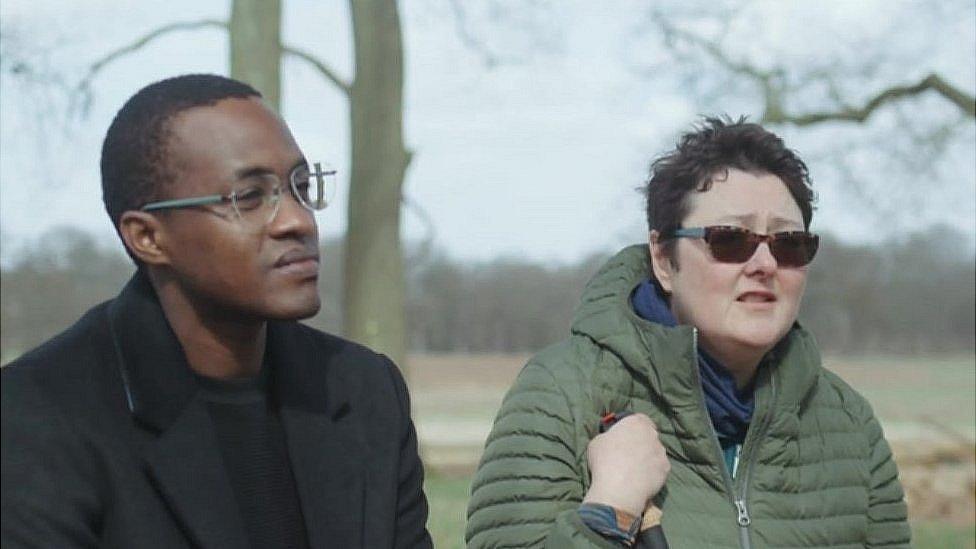
Denis Mutisya and Debbie Cooper feature in a new film by the NHS to publicise mental health service for veterans
"I joined up to pretty much do my full career in the military so being told that this is the end of my career was bittersweet," said Mr Mutisya.
"I was not physically able to carry on. I understand that, but I did struggle."
As his return to civvy street started becoming "very difficult", the veteran connected with Op Courage.
"At the time I wasn't even aware that I was struggling with my mental health," he continued.
"That one call - it changed my life.
Set up by the NHS in 2017, the "lifeline" service Op Courage has seen more than 30,000 referrals with many self-referring veterans looking for help.
"Up to that point, I thought I'd reached the end, but they helped me realise it was just the beginning," Mr Mutisya added.
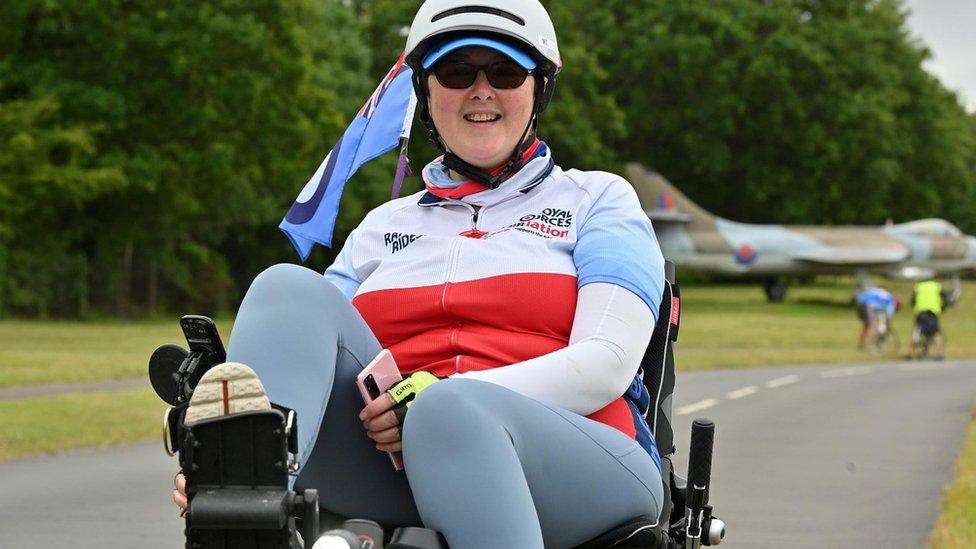
Veteran Debbie Cooper, 55, said talking to staff at NHS Op Courage was the "first glimpse of light at the end of the tunnel"
Former dental officer for the Royal Air Force, Debbie Cooper, said life after serving was also a "struggle".
"Everywhere I turned, no one really understood," said the 55-year-old veteran.
"Ultimately, I found myself in hospital after trying to end my life - I had lost all hope" she added.
"I was aware I needed help, and I tried, but it wasn't easy."
'Glimpse of light'
The turning point came when the Ms Cooper was searching for support online and came across Op Courage.
"It was the first glimpse of light at the end of the tunnel," she said.
"Talking to them was a breath of fresh air - I felt like someone was finally listening and responding in a way that was helpful.
"They got where I was coming from and understood my experiences.
"It finally felt like someone cared," she added.
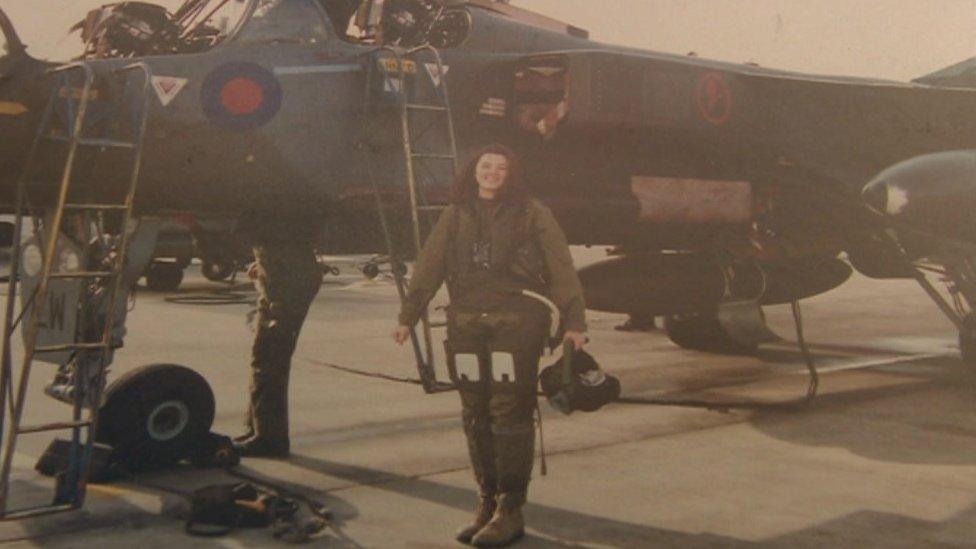
Ms Cooper, 55, from Gloucester, began serving in the Royal Air Force in her 20s
The NHS is hoping its revamped scheme- which now includes addiction support - will attract more self-referrals for veterans grappling with their mental health.
Dr Jonathan Leach, NHS England medical director for military and veterans' health, said staff were either ex-military or knew the "military culture first-hand".
"This sets them up to provide a non-judgemental service and build trust with those seeking help," he said.Johnny Mercer, Minister of State for Veterans' Affairs, urged anyone struggling "to reach out".
"I am determined to make this the best country in the world to be a veteran, but to do that we need veterans and the public to be aware of what support is already available to them," Mr Mercer said.
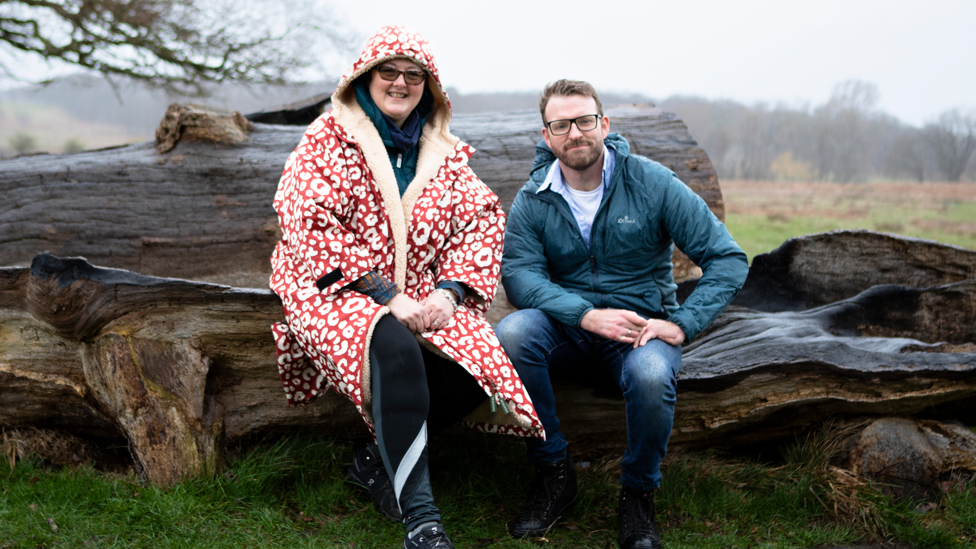
Mr Chalmers said it can be difficult asking for help and support "when you need it most"
Former Royal Marine, Invictus Games medallist and TV presenter JJ Chalmers, said having a service "developed by veterans, for veterans" was "invaluable".
"I remember how hard it was adjusting to life after the military, getting to grips with civvy street after everything I went through in Afghanistan," he said.
"I was wounded in service and I was literally broken from head-to-toe and that had its physical challenges, it had its mental challenges."
He added it can be "so difficult" asking for help and support "when you need it most".
"Recognising when you need to reach out is the first hurdle and fellow veterans can help so much with this, as they've been through it too," he said.
"They really get where you've come from," he added.

Follow BBC West on Facebook, external, X, external and Instagram, external. Send your story ideas to: bristol@bbc.co.uk , external
Related topics
- Published2 November 2023
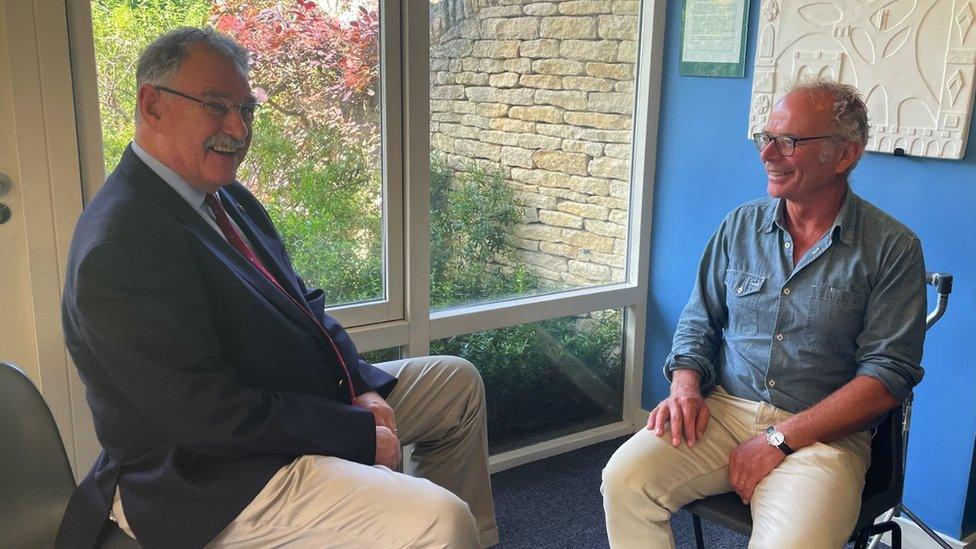
- Published29 May 2023
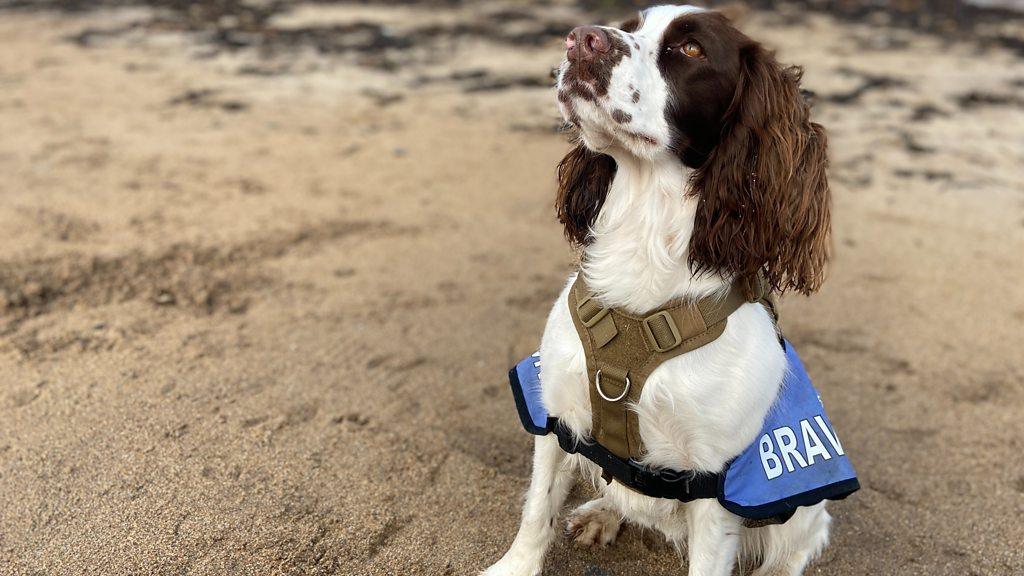
- Published24 March 2023
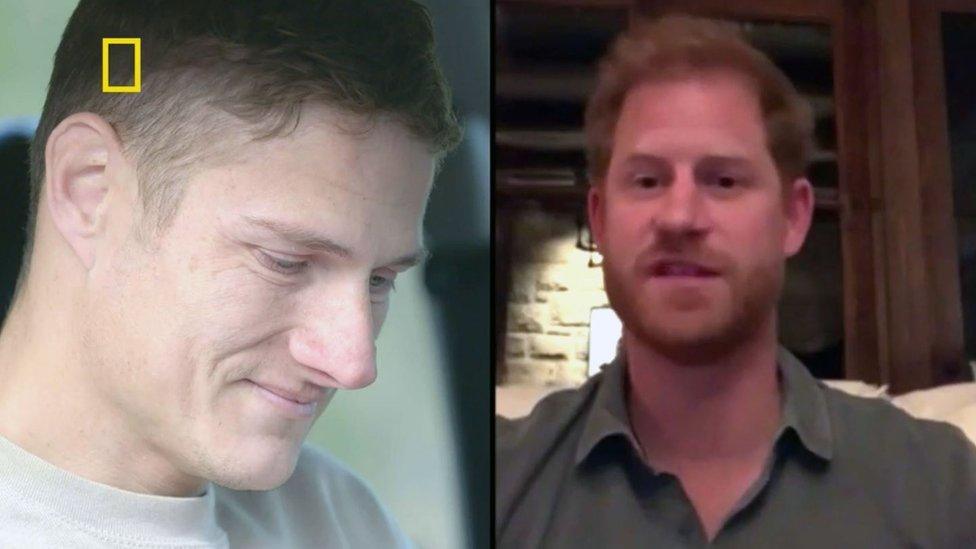
- Published27 February 2023
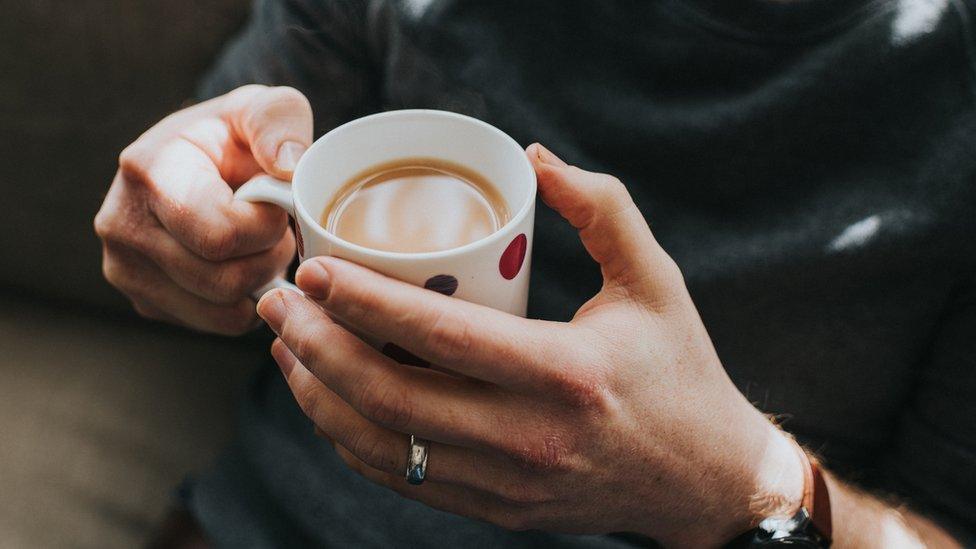
- Published11 November 2022
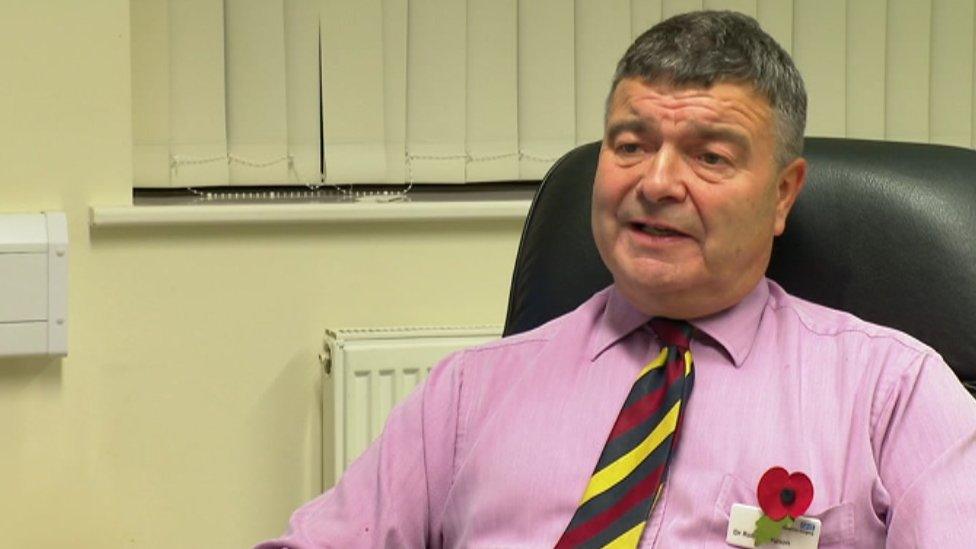
- Published10 October 2022
